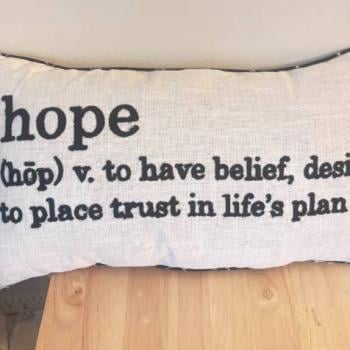What can other faiths tell us about our own? This week, I want to reflect on learnings I have gained from my Catholic heritage, Jesus’s Jewish tradition and my current Wesleyan training. What attributes do the Catholic’s Corporeal Works of Mercy, Wesley’s Means of Grace and Jesus’ Tikkum Olam share?
Concepts of Deep Ecumenism
When examining the Corporeal Works of Mercy, Wesley’s Means of Grace, and Tikkun Olam, we find they share a core focus on:
Action and Service
All three emphasize that faith is not passive but requires active engagement in the world. They call for concrete actions to alleviate suffering and improve the human condition. They promote the idea that spiritual growth is intertwined with practical service to others.
Social Responsibility
Each concept underscores the importance of our responsibility to our fellow human beings. They encourage us to look beyond our own needs and address the needs of the wider community. They share a vision of creating a more just and compassionate world.
Expression of Divine Love/Will
Whether through the lens of Christian mercy or Jewish repair of the world, these concepts see acts of service as an expression of divine love or a fulfillment of divine will. They suggest that by serving others, we are connecting with something larger than ourselves.
Focus on the Marginalized
Each of these concepts, in their own ways, place a high value on helping those who are in need and those who are marginalized by society. This can be seen in the Corporeal Works of Mercy, directly addressing needs of the poor, sick, and imprisoned, as well as in Tikkun Olam’s focus on repairing the world, which includes social justice, and in Wesley’s Means of Grace, with the works of mercy.
In a post that wrote on this concept on non duality , I offered that if “we as Christians are going to live the WWJD (I know it dates me, it was still cool) mentality intentionally, we must seriously consider tikkun olam and consider how our communities are true spaces of love and intentionality. As a behaviorist, one of many things that rubs me the wrong way is lack of consistency. Nothing keeps me up all night like a behavioral plan that is not working. Trying to get everyone on board is like my old first mate used to say, “like getting a drunken octopus to row a boat in one direction.”
Countering Division
We are a faith divided right now. No, we are not really divided, but rather a country with a huge while male supremacy problem. It is not common ground that we need to find. If we claim to be followers of the historical Jesus and not the Imperial faith that came after him, we need to stand on the side of accepting the basic humanity of those who do not look like us. My church tradition, The United Methodist Church guides United Methodists on our response through a document known as the United Methodist Social Principles. Recently, somebody assumed I had a strong opinion on what is going on right now, and while I do have certain feelings about the current state of affairs, objectively, it is the collection of events and the exclusion of rights, services and funding that is particularly concerning to me. If we are to consider seriously the three ideas from the traditions explore here, our feelings are more than pure opinion. As a human animal, it is our natural desire to feel an emotional need to help, I call it the righting reflex. As children, these bids for repair are a child’s way of manifesting these natural urges. If not successful, they can become maladaptive later in life and lead to all sorts of relational and vocational issues.
Personal Thoughts
My thoughts about the current state of affairs align with my church’s . The United Methodist Social Principles offer a framework for ethical engagement in society and therefore provide guidance during this period of upheaval. We can see reflections of Jesus’ Tikkum Olam and the Catholic Corporeal Works of Mercy in the words offered.
The principles echoing our other themes explored emphasize the inherent dignity and worth of all individuals and the significance of protecting human rights:
- Defending the rights of marginalized and vulnerable populations.
- Opposing discriminatory policies and practices.
- Upholding the principles of equality and justice.
The essence of these social principles is to promote justice and peace globally. As members of The United Methodist Church, individuals are encouraged to seek peaceful resolutions and advocate for justice for everyone. This is not just a Methodist posture, but the posture of the historical Jesus.
Conclusion
We do not exist for ourselves. Relational sociality as a defining quality of human existence is a way to avoid such egoism” (Simmons, p. 27). Non duality means ‘not two.’ In simple terms, the word means that there is no separation between you or anything else in your experience. We are one in Christ and in this oneness, we must understand that we are all one in Christ.”
In our ever-changing emergence of this new civil religion where historical Christian ideals are weaponized for the gain of others, we must lean into acts of mercy and grace.
Right now, we live in a world that seems to be excluding these elements of a faithful Christian life to put all our grain in storehouses for the wealthy. If we are truly going to answer the call, “who shall I send” and we answer, “send me”, we must seriously consider these three faith elements.
They will know we are Christians not by a word that has been bastardized, politicized and watered down but by our acts of justice, kindness, and social responsibility. These three concepts, though originating from different religious traditions, converge on the fundamental principle that faith is expressed through action and that we are called to be agents of healing and transformation in the world.
Reference:
Simmons, J. A. (2023). Camping with Kierkegaard: Faithfulness as a Way of Life. Wisdom Work.













